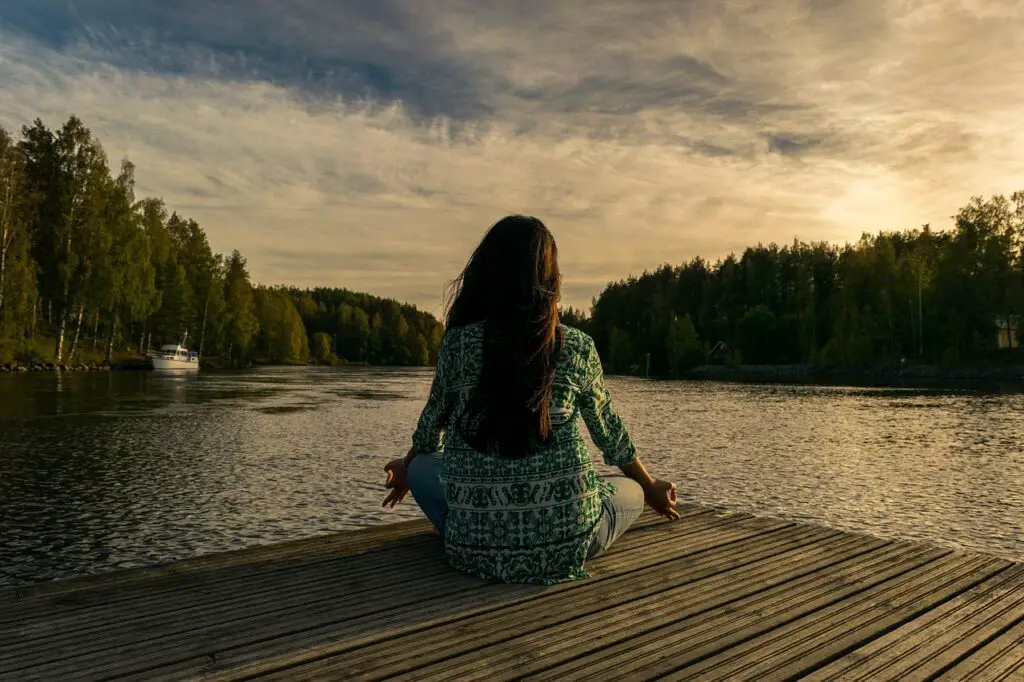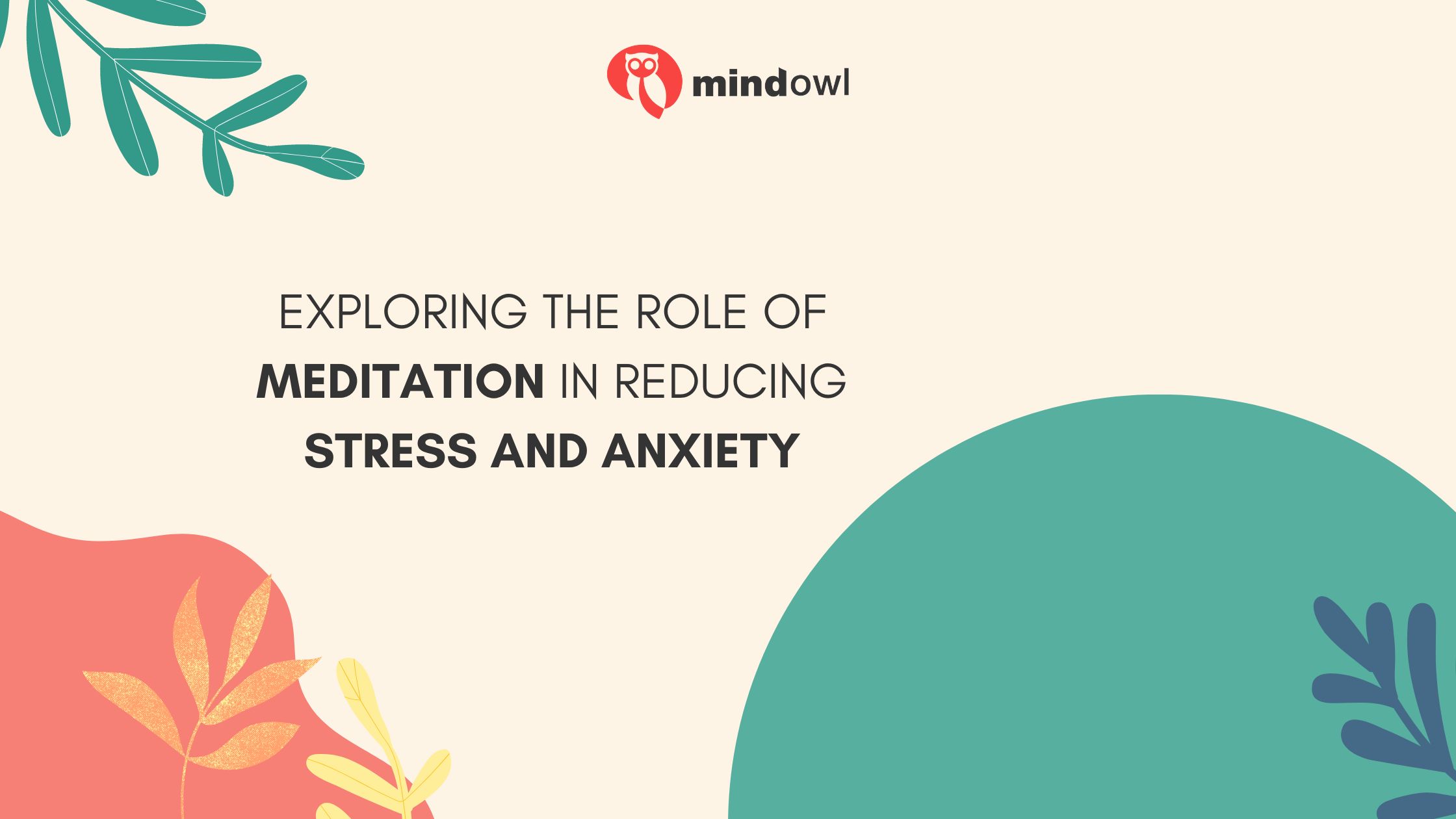Are you feeling overwhelmed and overstressed? Are your worries keeping you up at night? Maybe it’s time to explore the ancient practice of meditation for mind-body healing and self-care. Research shows that meditation can reduce stress and anxiety, as well as improve physical health, mental clarity, and emotional resilience. Join me in this blog post as we uncover how meditation works to bring peace into our lives while reducing exhaustion and enabling us to live with more joy!
Meditation
When meditating, we focuse on our breath or a mantra to quiet the mind and relax the body. This allows us to become more aware of our thoughts and feelings without judgment, which leads to greater clarity. As we continue these practices, we can learn to shift our mindset from being overwhelmed by stress and anxiety to being more mindful and present at the moment.
In addition to reducing stress and anxiety, meditation can also lead to a number of physical benefits, such as improved heart rate variability, lower blood pressure, and increased immune system functioning. Additionally, it has been linked with better cognitive performance, including enhanced memory and focus, as well as improved problem-solving skills.
Through regular practice of meditation, we can find peace within ourselves while simultaneously improving both our mental and physical health. Not only is it an effective tool for reducing stress and anxiety, but it also helps us become more mindful in our daily lives so we can enjoy life’s moments with greater clarity and joy.
Tips To Start a Regular Practice of Meditation
1. Find a comfortable space: It’s important to choose an area that is quiet and free from distractions so you can focus on your meditation practice.
2. Set a time and duration: Decide when and how long you want to meditate each day, whether it’s 10 minutes in the morning or 30 minutes at night. Having a designated time will help make it into a habit.
3. Focus on your breath: When starting out, focus on taking slow deep breaths as you inhale and exhale, allowing any thoughts or feelings that come up to pass without judgment. This helps clear your mind of clutter and helps bring awareness back to the present moment.
4. Start with short sessions: Don’t try to do too much at once! Begin with shorter meditation sessions, such as five or ten minutes, until you get used to the process before increasing your duration over time if desired.
5. Keep track of progress: Take note of how often you practice, what techniques work best for you, what kind of results they have, etc. Keeping track of this information will not only help keep yourself accountable but also provide insight into which areas need further development
6. Incorporate mindfulness into everyday life: Applying mindfulness practices outside of meditation can be beneficial to your mental health as well. Notice the small moments and take time to observe your surroundings – pay attention to smells, sounds, visuals, etc.
7. Find a meditation buddy: Having someone you can meditate with will help keep you motivated and accountable, plus it can make the experience more enjoyable!

Different Types of Meditations
Mindfulness meditation is one of the most popular forms of meditation. It involves focusing on the present moment and being open to whatever arises in our minds or bodies without judgment or clinging to any specific thoughts or sensations. This type of meditation can help reduce stress and anxiety while promoting greater awareness and acceptance of our current state.
Mantra meditation also helps to calm the mind by focusing on a repeating sound, word, or phrase. This form of meditation can be used to reach a deeper state of relaxation and focus, as well as cultivate positive emotions such as joy and gratitude.
Loving-kindness (or Metta) meditation involves sending positive thoughts and intentions toward yourself and those around you. By practicing this type of meditation, we can increase compassion towards ourselves and others while gaining a better understanding of our interconnectedness with all beings.
Visualization (or guided imagery) meditation includes creating mental images in order to evoke certain feelings or states within your body. For example, visualizing a calming beach scene might help to reduce stress or anxiety levels by inducing feelings of relaxation in the body.
Breath awareness (or pranayama) is another popular form of meditation that focuses on regulating the breath in order to alter consciousness levels, improve physical health, strengthen concentration abilities, and reduce stress levels.
Also, there is psychedelic retreats that offers psychedelic-assisted therapies using psychedelic substances like psilocybin and ayahuasca. These sessions can be used to help people through difficult times, such as depression or grief, by helping to create positive changes in thought patterns and behaviors.
Examples of Successful People Who Have Used Meditation
One example of a successful person who has used meditation for mind-body healing is Oprah Winfrey. She has credited her regular practice of meditation and mindfulness for helping her to stay grounded and focused on her goals. In addition, she believes it helps her to remain centered and in touch with her intuition. She also speaks openly about how the practice has helped her to reduce stress, anxiety, and depression, among other things.
Another example is musician and actor Will Smith. He uses meditation to improve his health and well-being, saying, “I meditate…It’s incredibly powerful. I’ve never felt so clear or so balanced as when I meditate.” He also emphasizes the power of setting intentions during his practice, saying that he feels that this helps him manifest more positivity in his life.
Finally, Olympic Gold Medalist Michael Phelps has spoken openly about how practicing meditation has been an important part of his mental health journey and success in the pool. He says it has helped him stay grounded and focused on achieving the goals he sets for himself both athletically and personally. He encourages others to take up the practice as well, emphasizing its effectiveness when done regularly over time.
Conclusion
Meditation is an incredibly powerful tool that can be used to improve your mental and physical health. It can help reduce stress, anxiety, and depression while increasing awareness, focus, relaxation, and overall well-being. There are many different types of meditation available to suit different needs or preferences – from mindfulness to mantra to psychedelic-assisted therapy. So, find what works best for you and begin your journey to a healthier and happier life.
MindOwl Founder – My own struggles in life have led me to this path of understanding the human condition. I graduated with a bachelor’s degree in philosophy before completing a master’s degree in psychology at Regent’s University London. I then completed a postgraduate diploma in philosophical counselling before being trained in ACT (Acceptance and commitment therapy).
I’ve spent the last eight years studying the encounter of meditative practices with modern psychology.

